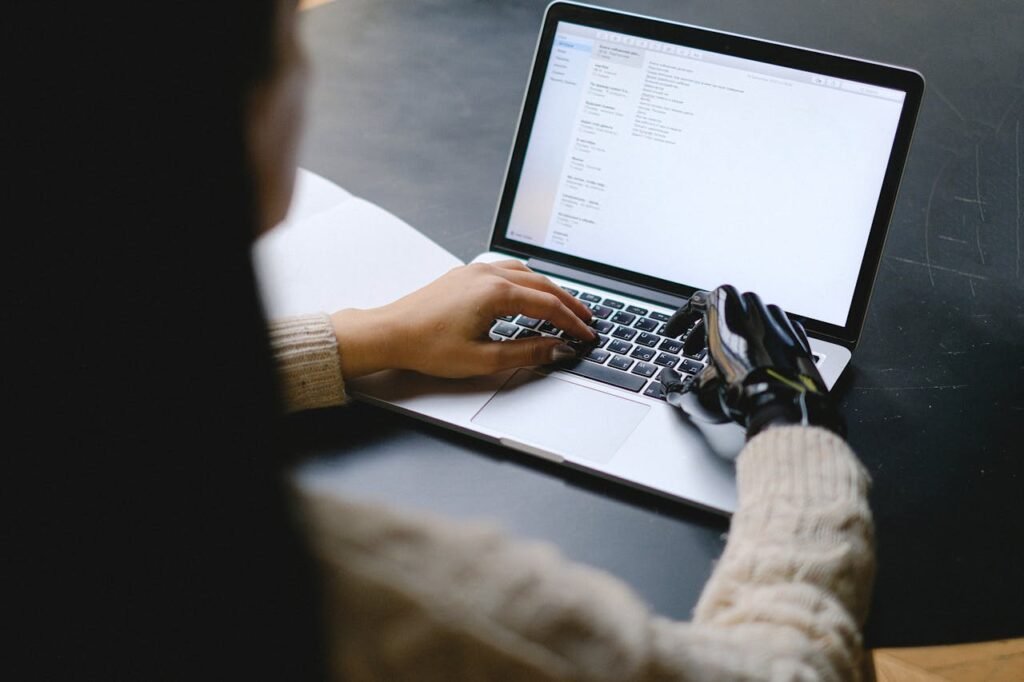Living with a disability presents unique challenges, but it also offers opportunities to grow, adapt, and thrive. Self-confidence plays a crucial role in this journey, serving as the foundation for achieving goals, forming relationships, and living a fulfilling life. Building confidence isn’t about ignoring the difficulties—it’s about embracing one’s abilities, cultivating resilience, and finding strength in individuality.
In this article, we explore practical strategies and insights for fostering self-confidence while living with a disability. Whether you are navigating this path personally or supporting someone who is, the guidance offered here will help create a foundation of empowerment and self-belief.
Understanding the Role of Confidence in Disability
Confidence shapes how we see ourselves and how we interact with the world. For individuals with disabilities, societal perceptions, personal experiences, and physical challenges can influence self-esteem. Understanding the role of confidence in overcoming these barriers is the first step toward building it.
The Psychological Impact of Disability
Living with a disability often involves navigating feelings of frustration, isolation, or inadequacy. These emotions can stem from societal stigma, difficulty performing daily tasks, or comparisons with others. However, recognizing these feelings as natural and temporary is essential in moving toward self-acceptance.
For businesses and organizations, acknowledging these emotional realities in their communication and services fosters trust and inclusivity. For instance, offering counseling or peer support programs tailored to the disability community helps address these emotional challenges directly.
Confidence as a Tool for Independence
Confidence empowers individuals to take control of their lives, make decisions, and pursue their aspirations. Whether it’s learning a new skill, seeking education, or finding employment, a strong sense of self-belief is often the driving force behind these actions.
For individuals, building confidence starts with recognizing and celebrating achievements, no matter how small. Businesses can amplify this process by providing platforms where success stories are shared, encouraging others to take similar steps.
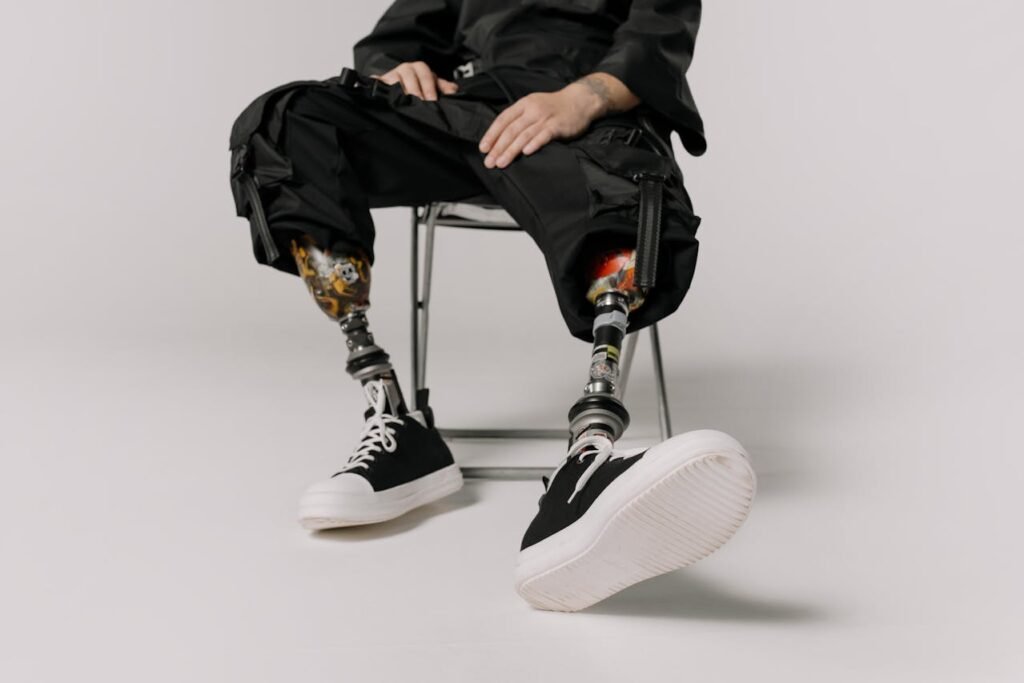
Embracing Self-Acceptance
Self-confidence begins with self-acceptance—the ability to embrace one’s identity and see value in individuality. Accepting a disability is not about ignoring its challenges but about recognizing it as one aspect of a multifaceted identity.
Overcoming Societal Expectations
Society often imposes rigid expectations about what individuals should achieve or how they should behave, particularly for those with disabilities. Breaking free from these expectations involves focusing on personal goals rather than external judgments.
For example, someone with a mobility impairment may feel pressured to hide their use of assistive devices to “blend in.” However, viewing these devices as tools for empowerment rather than symbols of limitation can shift this perspective.
Businesses can contribute by normalizing disability in their marketing and branding. Featuring individuals with disabilities in empowering roles—whether in advertisements, leadership positions, or community initiatives—redefines societal expectations and encourages self-acceptance.
Building Positive Narratives
The stories we tell ourselves shape our reality. For individuals with disabilities, shifting from a narrative of “I can’t” to “I can” requires reframing challenges as opportunities for growth. This mental shift is not easy, but it is transformative.
For instance, a person adjusting to a prosthetic limb might initially feel overwhelmed by the learning curve. By celebrating small milestones, such as walking independently or completing a physical therapy session, they can build a narrative of progress and perseverance.
Organizations can support this shift by offering workshops or online courses that focus on resilience, goal-setting, and self-empowerment. Highlighting personal success stories within these programs reinforces positive narratives and inspires participants.
Building Confidence Through Skill Development
One of the most effective ways to build self-confidence is by learning and mastering new skills. Acquiring knowledge and abilities not only empowers individuals but also creates a sense of accomplishment and independence. For people living with disabilities, pursuing skill development can be particularly impactful in boosting self-esteem and broadening opportunities.
The Power of Progress
When individuals focus on skill-building, they shift their attention from perceived limitations to possibilities. Each step of progress, no matter how small, reinforces the belief that they are capable of growth and achievement. For instance, learning to use assistive technology effectively can open doors to communication, employment, or personal enrichment.
Businesses can support this process by offering accessible tools and training programs that cater to diverse needs. For example, a prosthetics company might provide workshops on maximizing mobility with advanced devices, while a tech company could host coding boot camps tailored for individuals with disabilities.
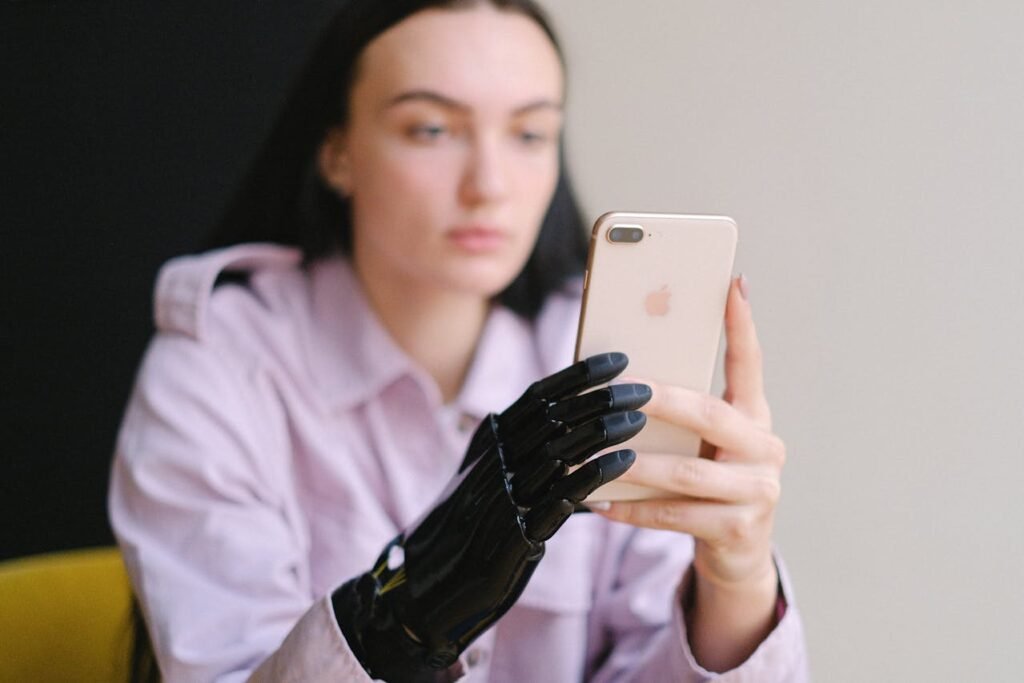
Expanding Career Horizons
For many individuals with disabilities, employment represents both a source of financial independence and a way to contribute to society. However, navigating the job market can be intimidating, especially when faced with workplace biases or accessibility challenges.
Skill development tailored to the modern workforce is a strategic way to bridge this gap. Programs that teach adaptive skills, such as remote work software proficiency or entrepreneurship, equip individuals with tools to succeed professionally. Additionally, mentorship programs can connect individuals with experienced professionals who guide them through career-building steps.
Businesses that prioritize inclusivity in hiring and training create an environment where individuals with disabilities feel valued and confident. Offering flexible work arrangements or showcasing employee success stories further reinforces this commitment.
Recognizing the Potential of Incremental Growth
Confidence grows incrementally, and each step in skill development reinforces the belief in one’s abilities. For example, someone learning to use assistive technology, such as a prosthetic limb or a screen reader, might initially find it daunting. However, mastering basic functions builds the foundation for tackling more complex tasks.
Businesses offering training for adaptive tools and technologies should structure their programs to start with foundational skills and gradually introduce advanced features. Creating a supportive and non-judgmental environment where users can practice at their own pace ensures positive reinforcement at every step, which is key to building confidence.
Tailoring Skill Development to Individual Strengths
Every individual has unique talents and abilities, and recognizing these strengths is essential for effective skill-building. For instance, someone with strong visual-spatial skills might thrive in graphic design, while another individual with excellent interpersonal skills could excel in customer service or advocacy.
Companies and organizations can implement assessments or discovery programs that help individuals identify their strengths and align them with potential career or personal growth paths. These programs can include one-on-one coaching, skill-matching tools, or interactive workshops designed to uncover hidden potential.
Offering specialized tracks within training programs also caters to individual interests and aspirations. For example, a technology company might create separate modules for coding, digital marketing, or video editing, ensuring participants have options aligned with their goals.
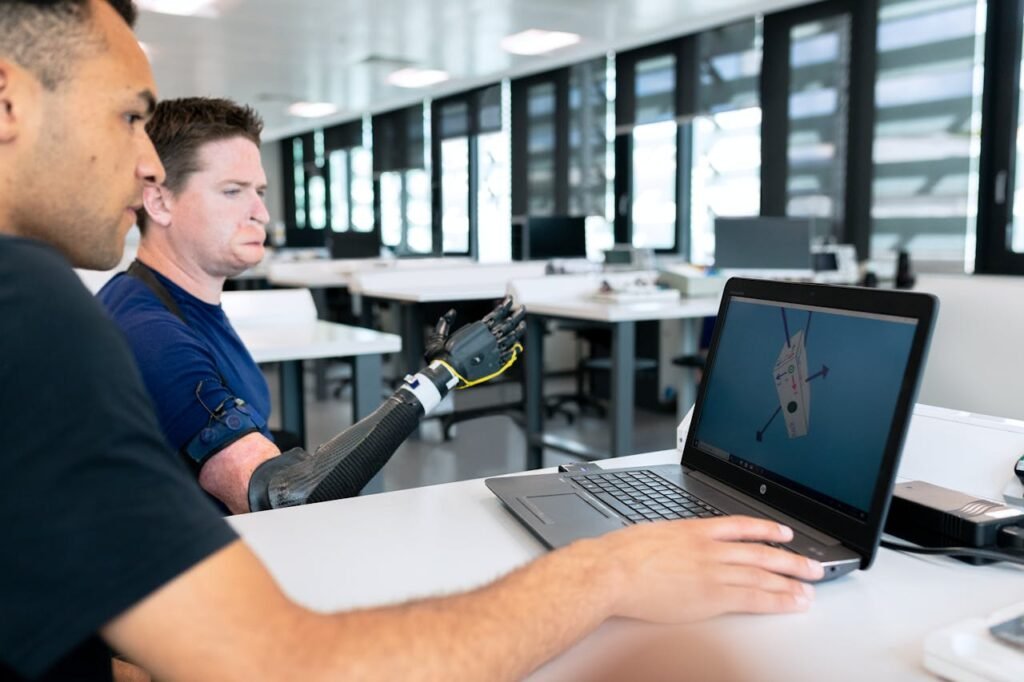
Integrating Real-World Applications
Learning becomes more meaningful when it is tied to real-world applications. For individuals with disabilities, skill development should be connected to practical scenarios that enhance their independence or open up opportunities.
For example, teaching someone how to use navigation apps designed for individuals with visual impairments not only equips them with a valuable skill but also empowers them to travel independently. Similarly, training individuals in communication software enhances their ability to connect with peers, participate in online communities, or pursue remote work opportunities.
Businesses can make their training programs more effective by incorporating simulations, role-playing, or hands-on experiences. Partnering with employers, educational institutions, or community organizations to provide internships or project-based learning ensures participants can apply their skills in real-life contexts, boosting their confidence further.
Leveraging Technology for Accessible Learning
Technology is a game-changer in skill development, especially for individuals with disabilities. Online courses, virtual reality (VR) training, and adaptive software create inclusive learning environments that cater to various needs. For instance, VR simulations can help individuals practice public speaking in a safe space, while online platforms with closed captioning ensure accessibility for those with hearing impairments.
Businesses developing learning technologies can enhance their offerings by incorporating accessibility features, such as voice commands, text-to-speech options, or customizable interfaces. Providing tutorials and ongoing support ensures users feel confident navigating the technology itself, paving the way for a smoother learning experience.
Creating a Supportive Environment
Confidence flourishes in supportive environments where individuals feel encouraged, understood, and respected. Building such an environment requires collaboration between families, communities, and organizations to create spaces that foster growth and empowerment.
The Role of Family and Friends
Families and close friends play a crucial role in shaping confidence, often serving as the first line of emotional support. Encouraging words, active listening, and celebrating achievements can make a profound difference. For example, a parent who supports their child in navigating challenges at school lays the groundwork for long-term self-assurance.
Businesses can extend this support by offering resources designed for caregivers, such as guides on how to nurture confidence in loved ones with disabilities. By fostering understanding within families, organizations contribute to a ripple effect of positivity and empowerment.
Building Peer Networks
Connecting with others who share similar experiences is another powerful way to bolster confidence. Peer networks provide a space where individuals can exchange advice, celebrate successes, and find inspiration in one another’s journeys.
Online communities, local meetups, or advocacy groups can serve as valuable platforms for these connections. Businesses can contribute by creating or sponsoring such networks, facilitating meaningful interactions that promote mutual encouragement.
For instance, a prosthetics manufacturer might host a community forum where users share tips and experiences related to mobility.
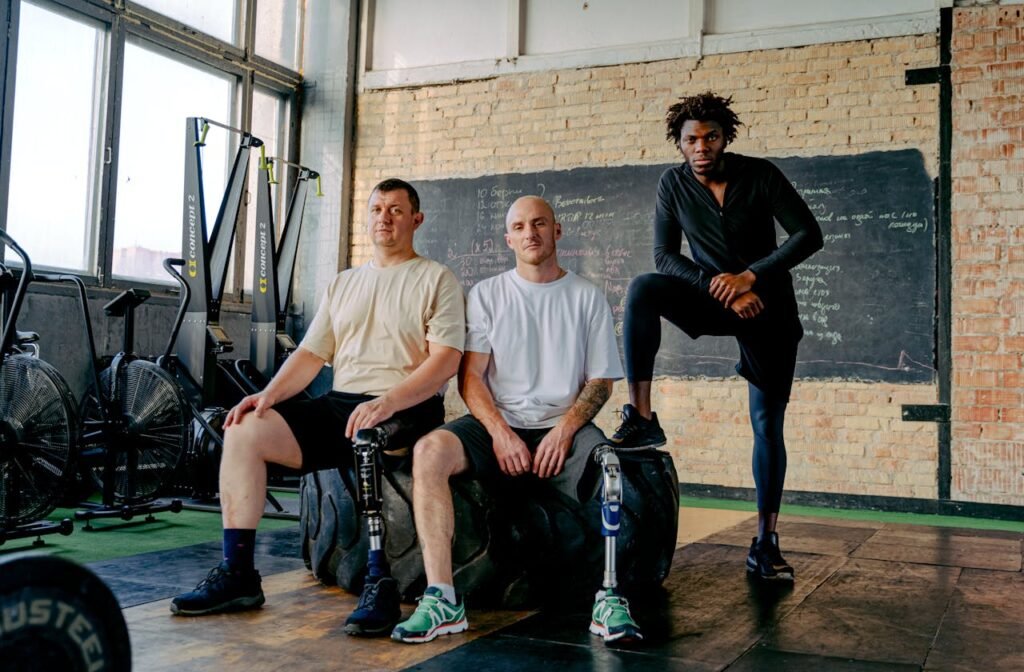
Reducing Social Barriers
Societal barriers, such as stigma or lack of accessibility, often erode confidence. Removing these barriers requires systemic changes that prioritize inclusivity in all aspects of life—from public spaces to media representation.
For businesses, this could mean ensuring that their products and services are designed with accessibility in mind or actively promoting inclusive messaging in their campaigns. By leading the charge in reducing social barriers, companies not only support individuals but also foster a culture of acceptance and respect.
Leveraging Technology to Empower
Technology is a game-changer for individuals with disabilities, offering tools that enhance independence and boost confidence. From assistive devices to digital platforms, technology bridges gaps and creates opportunities for growth.
Assistive Technology as a Confidence Booster
Modern assistive technologies are designed to empower users by addressing specific challenges and simplifying everyday tasks. For example, a prosthetic limb with advanced motor control allows its user to perform activities with precision, fostering a sense of capability and self-reliance.
Businesses in the assistive technology industry can take this empowerment further by offering hands-on training and ongoing support. Providing clear instructions, video tutorials, or one-on-one consultations ensures that users feel confident in operating their devices.
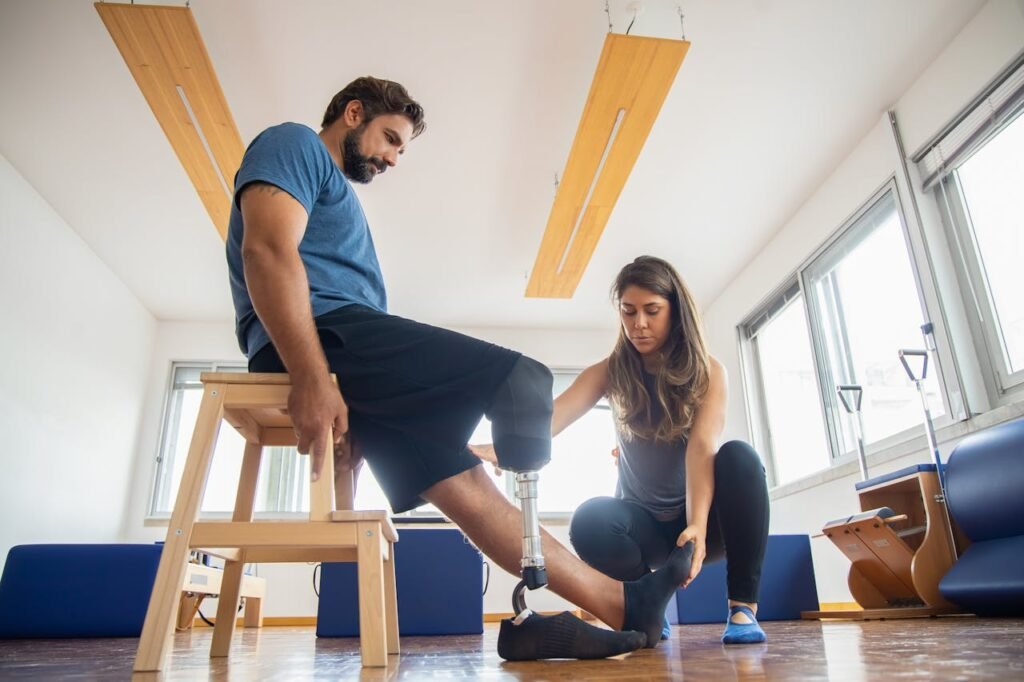
Digital Platforms for Connection and Growth
Digital platforms have opened new avenues for education, employment, and social interaction. Accessible apps and websites make it easier for individuals with disabilities to learn, work, and connect with others. For instance, virtual learning platforms that offer captions or screen reader compatibility enable inclusive education, while remote work tools provide flexibility for professionals.
Organizations can amplify their impact by collaborating with tech developers to create or enhance accessible digital solutions. By doing so, they demonstrate a commitment to inclusivity while expanding opportunities for users.
Transforming Challenges Into Opportunities
Every challenge presents an opportunity to learn, adapt, and grow. For individuals living with disabilities, reframing obstacles as opportunities for personal development is a powerful way to build resilience and confidence. Businesses and organizations can play a vital role in supporting this transformative process.
The Growth Mindset Advantage
A growth mindset—the belief that abilities and intelligence can be developed through effort—empowers individuals to approach challenges with curiosity rather than fear. This mindset encourages exploration, persistence, and a willingness to learn from setbacks. For example, an individual learning to use a new mobility device might initially struggle, but viewing the experience as a chance to master a valuable skill reframes the situation positively.
Businesses can foster this mindset by incorporating growth-focused messaging into their products and services. For instance, creating instructional content that emphasizes progress and celebrates small victories helps users stay motivated. Offering opportunities for continuous learning, such as advanced training sessions or skill-enhancement workshops, reinforces this approach.
Celebrating Resilience
Resilience is built through experiences of overcoming adversity. Every time an individual navigates a difficult situation, they strengthen their ability to handle future challenges. Celebrating these moments of resilience not only boosts self-esteem but also reinforces a sense of accomplishment.
For example, someone who has learned to navigate a public transit system using assistive technology has demonstrated adaptability and determination. Acknowledging these achievements—whether through personal reflection or public recognition—encourages continued growth.
Businesses can contribute by creating platforms where users can share their stories of resilience. This not only validates their experiences but also inspires others facing similar challenges. Highlighting these stories in marketing campaigns or community events demonstrates a company’s dedication to empowering its audience.
The Impact of Positive Role Models
Role models play a significant role in shaping self-confidence by providing tangible examples of success and perseverance. Seeing others who have thrived despite similar challenges inspires individuals to pursue their goals with greater determination.
Representation Matters
Representation in media, leadership, and community spaces is essential for fostering confidence among individuals with disabilities. When people see individuals like themselves in positions of influence or achieving milestones, it breaks down limiting beliefs and expands their vision of what is possible.
Businesses can prioritize representation by featuring individuals with disabilities in prominent roles within their organizations or marketing efforts.
For instance, a company that manufactures prosthetics could collaborate with an athlete who uses their products, showcasing their achievements while reinforcing the brand’s impact.
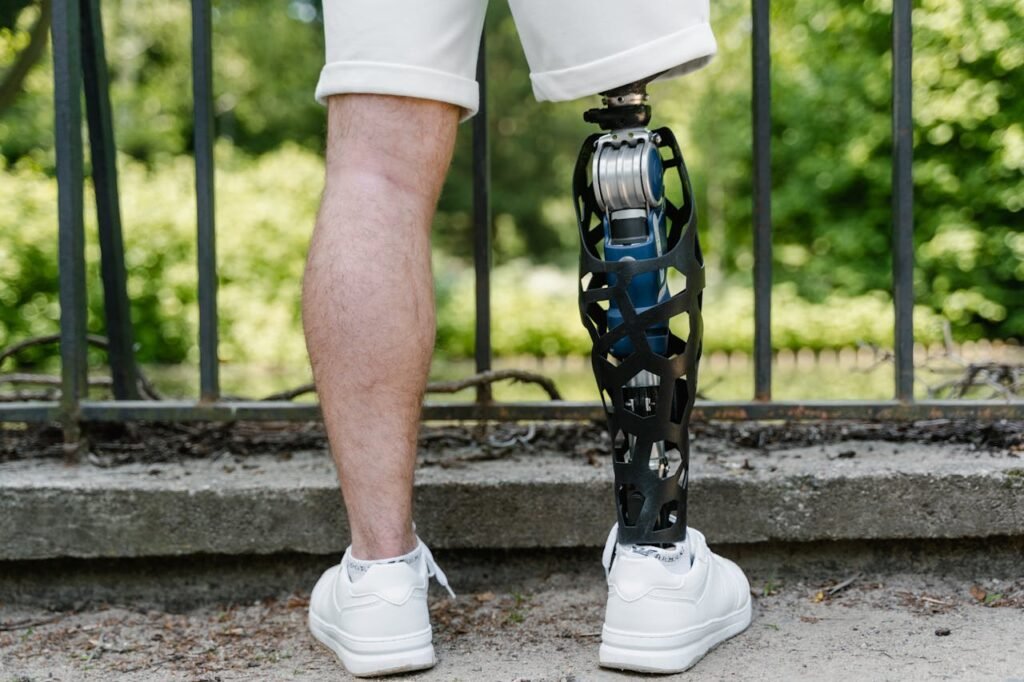
Mentorship and Guidance
Mentorship provides a direct and personal way to inspire confidence. Connecting individuals with mentors who share similar experiences offers guidance, encouragement, and a sense of belonging. For example, a young professional entering the workforce might benefit from a mentor who has successfully navigated similar career challenges.
Organizations can facilitate mentorship programs tailored to individuals with disabilities, ensuring that participants receive the support they need to succeed. These programs also create opportunities for businesses to deepen their engagement with the community and build lasting relationships.
Building a Foundation of Self-Worth
At the heart of confidence is self-worth—the belief that one’s value is inherent and not tied to external factors. For individuals with disabilities, fostering a strong sense of self-worth requires addressing societal stigma, internalized doubts, and the pressures of comparison.
Shifting Focus from Limitations to Strengths
Self-worth grows when individuals recognize and celebrate their strengths. This involves shifting focus from perceived limitations to the unique qualities that make them valuable. For instance, someone with a hearing impairment might excel in visual communication or attention to detail, skills that are highly sought after in certain fields.
Businesses can support this shift by offering resources that help individuals identify and leverage their strengths. For example, career assessment tools or personalized coaching programs can empower users to align their abilities with their aspirations.
Creating a Culture of Inclusivity
A culture that values diversity and inclusivity reinforces self-worth by demonstrating that everyone’s contributions are valued. Organizations that prioritize accessibility, representation, and equal opportunities create environments where individuals with disabilities feel respected and appreciated.
For businesses, this means not only meeting accessibility standards but also fostering an inclusive ethos in every aspect of their operations. From hiring practices to customer engagement, creating spaces where everyone feels welcome builds confidence and trust.
The Impact of Affirmation and Validation
Affirmation plays a critical role in building self-worth. For individuals with disabilities, receiving positive feedback and acknowledgment for their efforts and achievements reinforces the idea that their contributions matter. Affirmation isn’t limited to large accomplishments; even recognizing small milestones can have a significant impact.
Organizations and businesses can integrate affirmation into their operations by highlighting customer or employee success stories. For example, a prosthetics company could feature testimonials from users who have achieved personal milestones with the help of their devices, providing a platform for celebration and validation.
Such initiatives not only affirm individual worth but also inspire others in the community to recognize their own value.
Countering Internalized Stigma
Internalized stigma, or the belief that one’s disability diminishes their worth, can be a significant barrier to self-worth. Overcoming this challenge involves reframing the narrative around disability, focusing on strengths, achievements, and potential rather than limitations.
For instance, a person with a mobility impairment might initially view their assistive devices as symbols of dependence. Reframing these tools as enablers of independence and empowerment helps shift the focus to their positive impact.
Businesses can support this reframing by designing products that prioritize both functionality and aesthetics, turning assistive devices into symbols of innovation and individuality.
The Role of Purpose and Contribution
Feeling a sense of purpose is integral to self-worth. Individuals with disabilities often derive this sense of purpose through meaningful contributions to their families, communities, or workplaces. Recognizing their unique skills and abilities and finding ways to channel them into impactful endeavors builds both confidence and a deeper sense of self-value.
Businesses can create opportunities for individuals to contribute meaningfully by fostering inclusive workplaces. Employing individuals with disabilities not only demonstrates corporate social responsibility but also allows these employees to showcase their talents in diverse roles.
Furthermore, providing platforms for creative expression—such as community art projects, collaborative innovations, or public speaking engagements—amplifies their voices and reinforces their sense of purpose.
Conclusion
Building self-confidence while living with a disability is a journey, not a destination. It involves embracing one’s identity, cultivating resilience, and finding strength in both challenges and achievements. By fostering self-acceptance, pursuing growth, and connecting with supportive communities, individuals can unlock their full potential and lead fulfilling lives.
For businesses and organizations, supporting this journey is an opportunity to make a meaningful impact. By offering inclusive products, creating empowering resources, and promoting positive narratives, companies can play an active role in building a world where confidence knows no boundaries.
Ultimately, confidence is not just about what individuals achieve—it’s about how they see themselves and their place in the world. By prioritizing empowerment, we can create environments where every individual, regardless of ability, has the tools and support to thrive.



